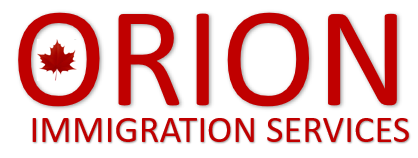family reunification
Sponsor family members

Whom can you sponsor?
Canadian citizens and permanent residents may sponsor eligible family members for permanent residence. In general, you must be able to support them financially.
Spouse or Common-law Partner
Your spouse (legally married to you and at least 18 years old)
Your common-law partner (isn’t married to you and you’ve been living together continuously for 1 year in a conjugal relationship)
Your conjugal partner (isn’t legally married to you or in a common-law relationship with you and has been in a relationship with you for at least 1 year)
Parents and Grandparents
Sponsors can sponsor their parents or grandparents to join them in Canada. In the application, you can include your brothers and sisters, or half brothers and sisters, or step-brothers and step-sisters only if they qualify as dependent children.
Dependent Children
Sponsors can sponsor their dependent children, including adopted children.
Children qualify as dependants if they
- are under 22 years old and
- don’t have a spouse or partner
Dependants over the age limit
Children 22 or older qualify as dependants if they
- have depended on their parents for financial support since before they were 22 and
- can’t financially support themselves because of a mental or physical condition
Other Family Members
In some cases, sponsors may be able to sponsor other eligible family members, such as siblings or other relatives in certain circumstances.
FAMIly class
who is eligible to sponsor?
ELIGIBILITY
You can sponsor your spouse, partner or dependent child if:
- You’re at least 18 years old
- You’re a Canadian citizen, a permanent resident of Canada, or a person registered in Canada as an Indian under the Canadian Indian Act
- If you’re a Canadian citizen living outside Canada, you must show that you plan to live in Canada when the persons you want to sponsor become permanent residents
- You can’t sponsor someone if you’re a permanent resident living outside Canada
- You’re able to prove that you’re not receiving social assistance for reasons other than a disability
- you can provide for the basic needs of any persons you want to sponsor
Income requirement
In most cases, there isn’t an income requirement to sponsor your spouse or partner or dependent child. You only need to show that you have enough money to meet the income requirements if:
- you’re sponsoring a dependent child that has 1 or more dependent children of their own, or
- you’re sponsoring a spouse or partner that has a dependent child, and their dependent child has 1 or more children of their own
You can’t sponsor your spouse, partner or child if:
- you’re less than 18 years old
- you won’t live in Canada when the persons you want to sponsor become permanent residents
- you’re not a Canadian citizen, a permanent resident of Canada, or a person registered in Canada as an Indian under the Canadian Indian Act
- you’re a temporary resident, that is you’re visiting, studying or working in Canada on a visa or permit
your permanent residence application is still in process - You must have permanent resident status at the time you submit your sponsorship application.
you don’t have enough money to support the persons you want to sponsor (if applicable)
You may not be eligible to sponsor your spouse, partner if you:
- were sponsored by a spouse or partner and you became a permanent resident less than 5 years ago
- are still financially responsible for a previous spouse or partner that you sponsored
- you have already applied to sponsor the spouse, parent or child you are currently seeking to sponsor and a decision on that application hasn’t been made
- are in jail, prison, or a penitentiary
- didn’t pay back:an immigration loan,a performance bond or court-ordered family support payments such as alimony or child support (not applicable if you live in Quebec)
- didn’t give the financial support you agreed to when you signed a sponsorship agreement to sponsor someone else in the past (not applicable if you live in Quebec)
- declared bankruptcy and are not discharged (not applicable if you live in Quebec)
- receive social assistance for a reason other than a disability
- you were convicted of attempting, threatening to commit or committing a violent criminal offence, any offence against a relative or any sexual offence inside or outside Canada
- can’t legally stay in Canada and must leave the country because you received a Removal Order
ELIGIBILITY
You can sponsor your own parents and grandparents if
- you’re invited to apply
- you’re at least 18 years old
- you live in Canada
- you’re a Canadian citizen, a permanent resident of Canada, or a person registered in Canada as an Indian under the Canadian Indian Act
- you have enough money to support the people you want to sponsor
- you meet all other requirements under the Immigration and Refugee Protection Act and the Immigration and Refugee Protection Regulations
You can’t sponsor your parents and grandparents if
- you haven’t been invited to apply
- you’re less than 18 years old
- you won’t live in Canada when you apply to sponsor your parents and grandparents and/or when your parents and grandparents become permanent residents
- you’re not a Canadian citizen, a permanent resident of Canada or a person registered in Canada as an Indian under the Canadian Indian Act
- you’re a temporary resident, that is you’re visiting, studying or working in Canada on a visa or permit
your permanent residence application is still in process - You must have permanent resident status at the time you submit your sponsorship application
- your proof of income shows you don’t have enough money to support the people you want to sponsor
You may not be eligible to sponsor your parents and grandparents if you
- are in jail, prison or penitentiary
- didn’t pay back an immigration loan, a performance bond or court-ordered family support payments such as alimony or child
- didn’t give the financial support you agreed to when you signed a sponsorship agreement to sponsor someone else in the past
- declared bankruptcy and are not discharged
- receive social assistance for a reason other than a disability
- were convicted of a violent criminal offence, any offence against a relative or any sexual offence inside or outside Canada
- can’t legally stay in Canada and must leave the country because you received a Removal Order
The sponsorship agreement means :
- that you’ll provide for the basic needs of your sponsored family members, including
- food
- clothing
- utilities
- personal requirements
- shelter
- fuel
- household supplies
- health care not covered by public health insurance, such as eye and dental care
- the person you sponsor will make every effort to support themselves and their family members
This agreement is still valid, and you must still cover basic needs for the period it covers, even in the case of
- marriage ending,
- separation or divorce
- family rifts
- unemployment
- change in finances
- death of the main applicant, if you also sponsor their family members
When you apply, you’ll have to complete and sign a form that includes the undertaking and the sponsorship agreement.
The “length of undertaking” is the time period you’re financially responsible for the person you sponsor. It starts on the day the person you sponsor becomes a permanent resident.
| Person you sponsor | Length of undertaking for all provinces except Quebec |
|---|---|
| Spouse, common-law partner or conjugal partner | 3 years |
| Dependent child (biological or adopted) or child to be adopted in Canada under 22 years of age | 10 years, or until age 25, whichever comes first |
| Dependent child 22 years of age or older | 3 years |
| Parent or grandparent | 20 years |
| Other relative | 10 years |
Contact us today to schedule a review!



